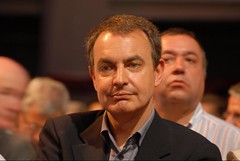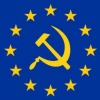 Padre português culpa políticos xenófobos por crise em Lampedusa
Padre português culpa políticos xenófobos por crise em LampedusaHá partidos xenófobos na política italiana que estão a impedir a ajuda humanitária aos cerca de 20 mil imigrantes ilegais do norte de África que nos últimos três meses chegaram à ilha de Lampedusa, diz o padre Rui Pedro.
O sacerdote é conselheiro-geral dos Missionários Scalabrinianos, que debatem hoje na Amora as respostas da igreja às questões da imigração.
A situação em Lampedusa, onde têm desembarcado multidões de imigrantes do Norte de África é drástica, muito por culpa de uma direita xenófoba, explica o padre.
“Neste governo estão partidos, incluindo um que é dos mais xenófobos da Itália, que por ideologia e pela sua visão da sociedade, para manter a coligação têm obrigado a cedências que nem sempre vão numa linha de integração. São mais razões políticas que impedem o acolhimento e a integração que a Igreja exige, mais aberta, mais humanitária e mais fraterna.”
Os Missionários Scalabrinianos, que trabalham no terreno com muitos dos que chegam à Europa à procura de melhores condições de vida, exigem novas politicas de acolhimento e de integração dos imigrantes.
como sempre, a igreja não engana, e está sempre ao lado dos imigrantes e estrangeiros contra as forças do "mal". desta vez foi um português a meter-se em assuntos que não lhe dizem respeito...








































